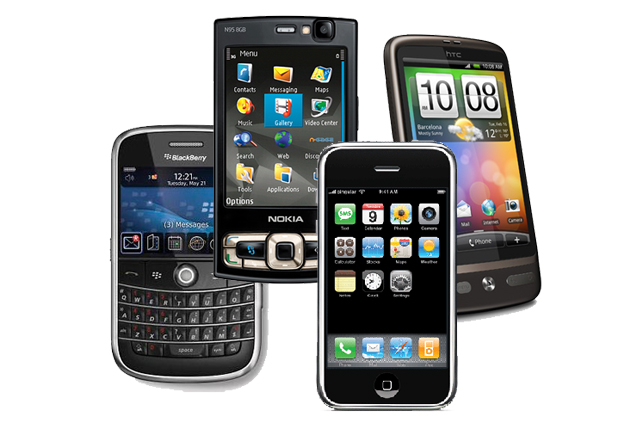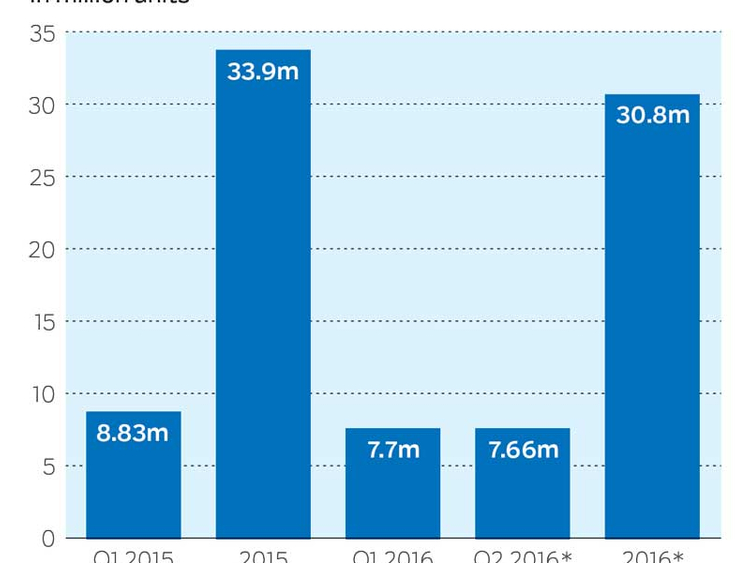Dubai: Mobile phones are no longer immune to the weakening regional consumer sentiment as the gloomy macroeconomic outlook, reduced government spending and ongoing political instability continue to bite.
The total shipments into the Gulf Cooperation Countries (GCC) are expected to suffer a 7.8 per cent year-on-year decline to 7.66 million units in the second quarter of this year; however, smartphone shipments are expected to increase. The drop in shipments will be due mainly to basic mobile phones.
Nabila Popal, research manager for mobile handsets at research firm International Data Corporation, told Gulf News that the impact is going to come mainly from Saudi Arabia due to its policy of employing only Saudi nationals in its mobile phone stores in the kingdom. The reduction will also come from reduced IT spending in the kingdom.
Saudi Arabia has stepped up efforts to lower unemployment among its citizens by fining private sector firms that employ more foreigners than Saudis.
She said that distributors are reluctant to invest and are keeping a close watch on Saudi Arabia.
In the first quarter, the market suffered a double-digit decline to 7.7 million units, with shipments down 13.2 per cent year on year to 8.83 million.
“In today’s challenging economic environment, consumers are increasingly looking for an attractive value proposition, and it is for this reason that phones priced less than $300 now make up 52 per cent of the GCC’s smartphone market during the first quarter,” Popal said.
She expects the GCC’s mobile phone market to continue to stutter throughout 2016, with a slight recovery possible by the end of the year. Consumer spending has been hit hard across the region, and it is the consumer segment of the market that is the major driving force behind demand for mobile phones.
“This is being compounded by the lack of major innovation currently taking place in the industry. While there are always some technological advances from one flagship launch to another, these incremental improvements aren’t really enough to warrant device upgrades, which is leading to a lengthening of the previously short smartphone refresh cycle. As such, we are seeing vendors and channels brace themselves for a tough year ahead,” she said.
Samsung, Apple, and Huawei lead the way in the region’s smartphone space in the first quarter, accounting for a combined 75 per cent of the units shipped during the quarter. Samsung commands top spot with 44 per cent share, an increase on the previous quarter that was spurred by the launch and subsequent success of the vendor’s Galaxy S7 flagship device. Apple accounted for 19 per cent of the market, followed by Huawei with 13 per cent share.
She said that consistent demand for basic phones persists in the GCC, with the devices accounting for around 21 per cent of total mobile phone shipments during the quarter.












